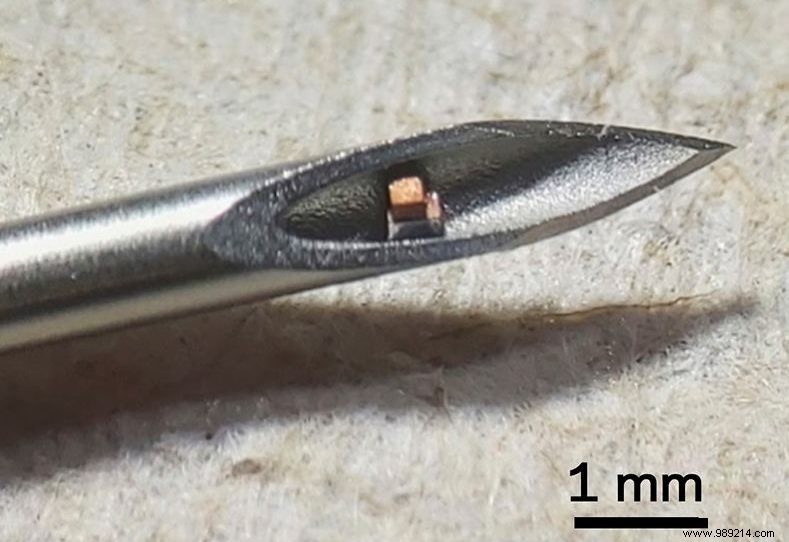At a time when more and more people are using one of the vaccines against the SARS-CoV-2 coronavirus, a conspiracy theory has not waited to resurface. Using the pretext of injecting doses of vaccine, governments would indeed intend to implant chips in our bodies without our knowledge. However, a microchip project to be implanted does exist, but the motivations are quite different.
About a year ago, we were interested in why "antivax" rejected the idea of a vaccine. If all people against Covid-19 vaccines are not necessarily refractory to all vaccines, the first reason seems to be the fear of conflicts of interest between government and health authorities and laboratories. Then comes the fear of developing reactions to the vaccine and other more or less long-term side effects.
However, there is a theory that did not wait for the current coronavirus to haunt some minds. Indeed, a number of people think that vaccines are just a pretext to implant microscopic chips in the bodies of citizens for the purpose of monitoring them. If this theory is not real, microchips to be implanted in the body are not really science fiction.
Indeed, researchers at Columbia University in New York (United States) are working on a kind of microchip. As explained in their study published in the journal Science Advances on May 7, 2021, implanting these chips would make it possible to analyze certain medical data. Measuring less than one cubic millimeter , they would be used to analyze blood pressure, temperature or even breathing. This would then allow doctors to process this information.

These chips transmit data to a sensor, a piezoelectric transducer capable of converting ultrasound into electrical signals. Doctors can then read these same signals using an ultrasound probe similar to those used for an ultrasound. These chips could be injected using a syringe . Carrying out this manipulation before a surgical operation would, for example, allow doctors to have access to information in real time. Nevertheless, there is no question of remotely accessing these chips without the patient being informed beforehand.
Today, these chips are still in the development stage , so the tests on humans are not yet for now. However, laboratory rats have already made it possible to experiment with them. The researchers have in fact implanted them in the brain and hind legs for temperature measurements. Far from conspiracy theories, the director of this research Ken Shepard even says he is against certain practices such as biohacking. “I am not a fan of implanting electronics of any kind into healthy people. I don't think the risk-reward ratio of these devices makes sense “, he explains. Indeed, some people implant chips under their skin themselves, as is the case of this woman who, in 2019, wanted to have an unusual way to unlock her Tesla Model 3.